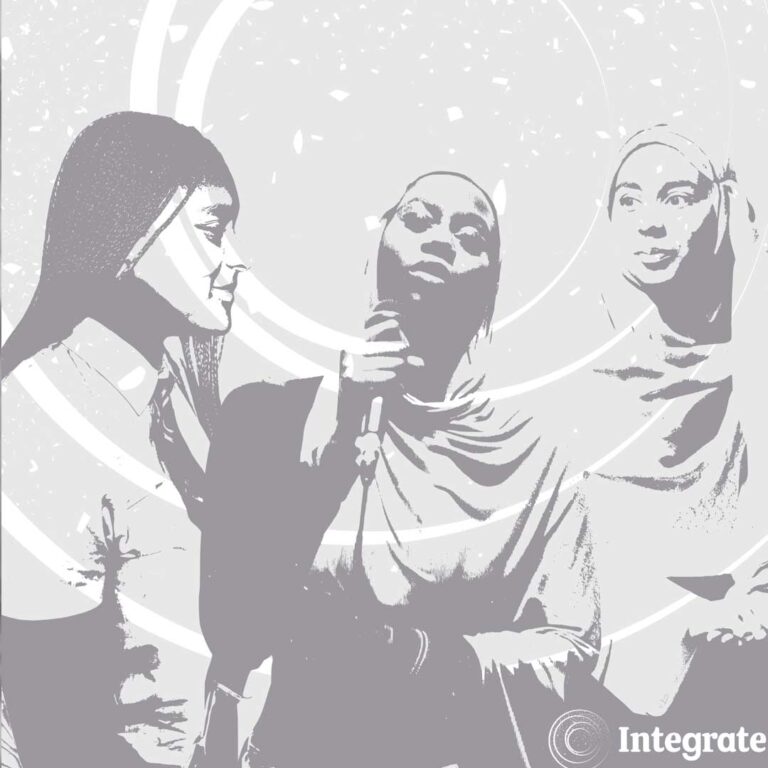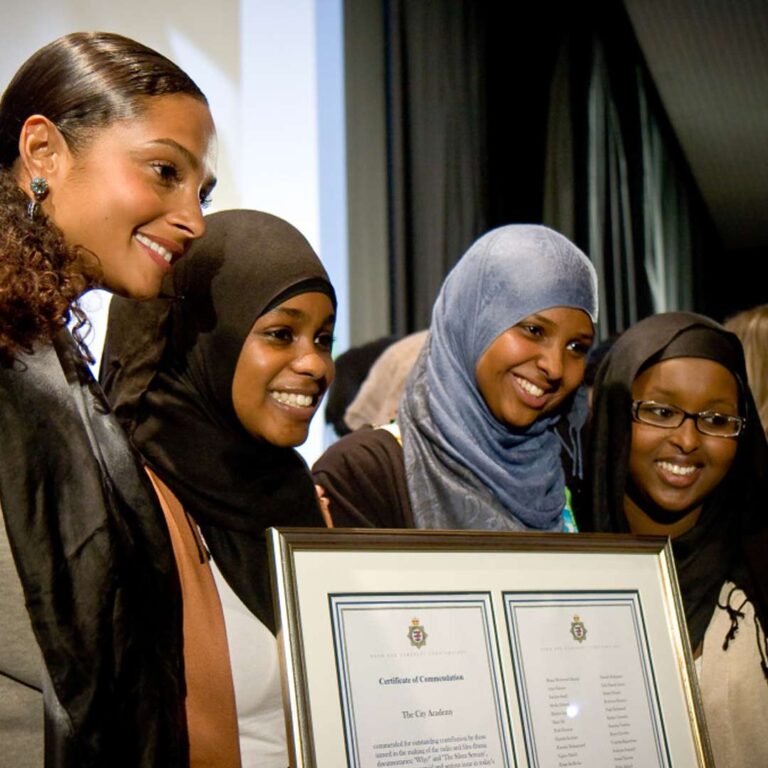I’m Cynthia Nchang, 26 years old, and I’ve been part of Integrate UK since 2014, though it feels like I’ve lived a dozen lifetimes since then.
I’d just moved from Ireland to a whole new country, city, and life. Everything felt unfamiliar until one day, after a few school performances, a classmate told me about a jazz project Integrate was working on. He said one of the teachers was involved and encouraged me to speak to her either at lunch or after school. I chose after school. That teacher was Lisa Zimmerman (or Miss Zimmerman, as we called her back then). I still remember walking into that room and being completely blown away. The atmosphere was electric, and the stories I heard were almost unbelievable. Young people my age were making real change, and I knew I wanted to be part of it.
I’ve always believed in creating the change you want to see.
Back in Ireland, I was an anti-bullying ambassador, so activism wasn’t new to me. But when I started researching FGM and realised it was happening in my own country, I was shocked. That curiosity led me from Google searches to recording studios and into deep discussions with like-minded young people. Integrate became my safe space, especially as someone from a single-parent household who often had to babysit my younger sisters. I could bring them along, and they had things to do, too. It was a place where being a woman wasn’t seen as an obstacle to success, but a strength.
Even after 11 years, there hasn’t been a single year in which I haven’t received support from Integrate. When I failed my GCSEs, they encouraged me to keep going. As someone with dyslexia, I never believed I could make it to university, especially with the stigma that exists in the African community. But Integrate was the one place I could talk about it openly and be understood. I’ll never forget the day I got my university scholarship. I hadn’t even told my mum yet, I just casually mentioned it to Lisa in one of our many office chats: “I think I got a scholarship.” She screamed, ran out of the office, and told everyone. That’s when it hit me: I’d actually done something incredible. And I was reminded to be proud of myself.
Even at uni, I continued to do outreach work. During COVID, I mentored a group of young people in music via Zoom, and we eventually created a music video in support of the Black Lives Matter movement. In 2021, our Junior Trustee at the time, Shaheim Minzie, directed the video, a celebration of Black excellence, representation, and identity. It was surreal going from being mentored to mentoring others, and seeing young people look up to me the way I once looked up to others. We created something they could see themselves in, and so could I.
Integrate supported me through lockdown too, giving me experiences I thought I’d only get at uni. They even helped me financially, guiding me to apply for a grant when I hadn’t worked for six months. Throughout my twenties, even after uni, they’d call just to check in or offer new opportunities.
I was always encouraged to pop into the office, and I always left feeling better.
When my mum became critically ill, I moved back to Bristol to care of her. I was working in social care with a degree in hand, and Integrate kept encouraging me to explore different career paths, ones that reflected the hard work I’d put in. Eventually, a role came up through the Time to Shine programme, and just like that, I went from being a beneficiary to a staff member. Now I work in communications and marketing, while also doing a marketing apprenticeship to support my development.
And every single day, I’m reminded: I got this job because I’m qualified, not just because I’ve known Integrate for years. If I could say one thing about Integrate UK, it’s this: when you feel lonely, they help you build a family bond. You’re not just seen as an ethnic minority, or a woman, or a young person who doesn’t know what they’re talking about. You’re seen as a valuable member of society. And your words matter.
By Cynthia Nchang


